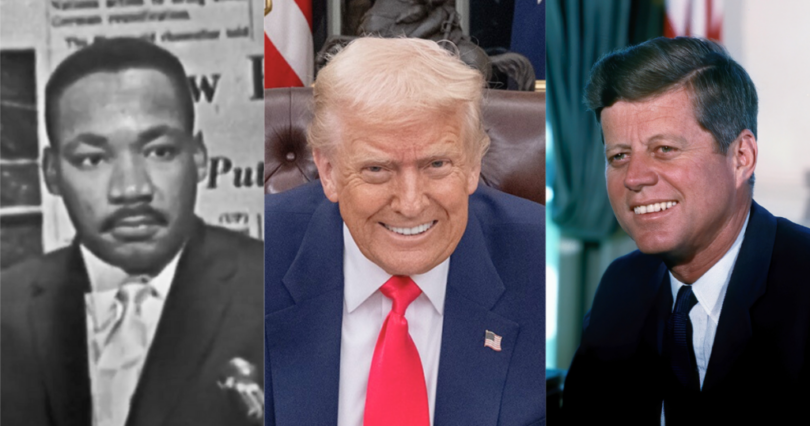MLK, RFK Files Given March 9 Deadline
A new deadline for the release of the assassination files of Robert F. Kennedy (RFK) and Martin Luther King Jr. (MLK) has arrived, marking the second significant milestone in an ongoing effort to declassify these documents.
The March 9 deadline follows the fallout from the release of Jeffrey Epstein-related files by the Department of Justice, raising new questions about the handling of sensitive materials.
In January, President Donald Trump signed an executive order calling for the declassification of files related to the assassinations of former President John F. Kennedy, RFK, and MLK. Under this order, the director of national intelligence (DNI) and other key officials were expected to submit their release plans for the RFK and MLK documents by March 9.
These plans were developed after a prior February 7 deadline for the submission of plans regarding the JFK assassination files.
This latest deadline comes on the heels of the February 2025 release of several Epstein-related documents. However, many of the files released by the Justice Department had already been made public during the federal trial of Ghislaine Maxwell, Epstein’s convicted accomplice.
This lack of new material spurred criticism, especially from those questioning the Trump administration’s handling of the Epstein files, and raised expectations for what the RFK and MLK documents might reveal.
Gerald Posner, author of Case Closed, commented on the situation, suggesting that while the upcoming RFK and MLK files could contain new information, they are unlikely to radically change the public understanding of the events surrounding the assassinations. Posner believes that the documents may provide some new insights, but not any earth-shattering revelations.
The push for transparency regarding these assassination files is rooted in Trump’s earlier promises to declassify such materials upon returning to the White House. During his 2024 presidential campaign, Trump vowed, “When I return to the White House, I will declassify and unseal all JFK assassination-related documents. It’s been 60 years, time for the American people to know the truth.”
This promise set the stage for the executive order aimed at releasing previously classified documents, per Fox News.
The FBI responded to Trump’s directive in February by announcing the discovery of approximately 2,400 newly inventoried and digitized records related to the JFK assassination case.
These documents had previously gone unrecognized as part of the case file but are now being transferred to the National Archives for inclusion in the ongoing declassification process.
In the aftermath of the Epstein file release, Attorney General Pam Bondi voiced strong concerns over the handling of the Epstein documents. Bondi sent a letter to FBI Director Kash Patel accusing the New York office of withholding thousands of pages of Epstein-related materials.
Bondi, who had previously requested the documents, stated that she was assured by the FBI that she had received the full set, only to later learn that additional files were in possession of the New York office.
According to Bondi, the FBI’s failure to provide the full set of documents led her to question the agency’s handling of the Epstein case. She also accused certain FBI agents of attempting to conceal or destroy the materials related to the investigation.
The fallout from the Epstein file release has created a sense of urgency surrounding the declassification efforts, with many wondering whether the RFK and MLK files will offer any new insights or lead to further controversies.
The March 9 deadline has kept attention focused on the progress of these long-awaited disclosures, especially in light of the heightened public interest surrounding the Epstein documents.
Scroll down to leave a comment and share your thoughts.


Leave a Comment